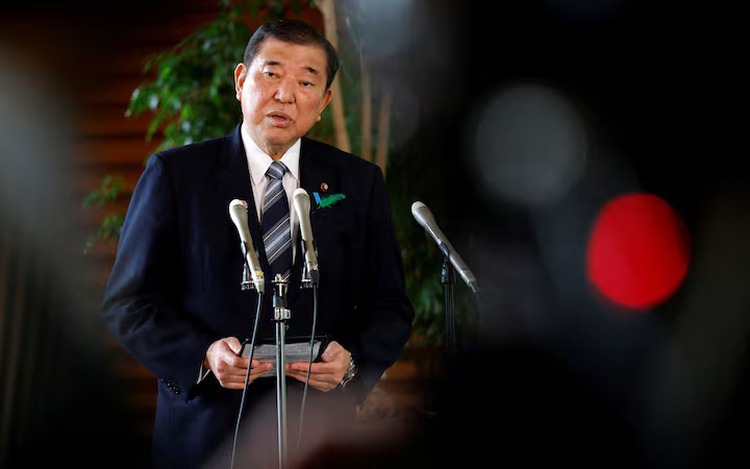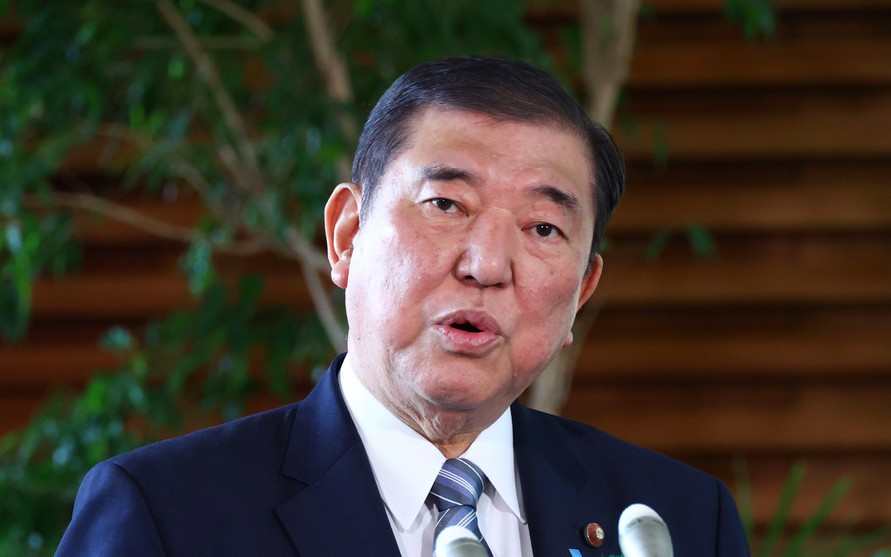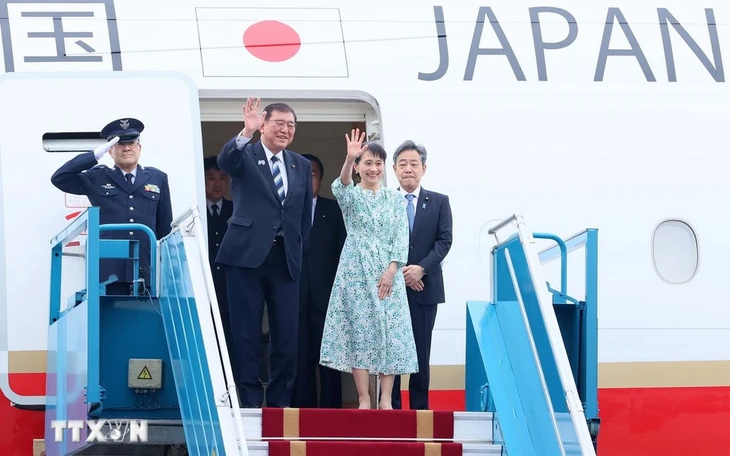
Japanese Prime Minister Shigeru Ishiba reacts as he speaks to reporters after a Japanese negotiator held ministerial talks at the White House regarding U.S. tariffs, at the prime minister’s official residence in Tokyo, Japan, 17 April 2025. Photo: Reuters
The two leaders, meeting at the Malacanang presidential palace in Manila, also agreed to launch negotiations to conclude an acquisition and cross-servicing agreement.
Japan and the Philippines have become partners close to an alliance, Ishiba said at a joint press conference after the meeting. Marcos said that the two countries are in a golden age of relations.
Tokyo views its relations with Manila as a quasi-alliance and has been enhancing defense cooperation, including by signing an agreement to facilitate visits by the Japanese Self-Defense Forces and the Philippine military.
Some Japanese officials have expressed hope that an intelligence sharing agreement between Tokyo and Manila will enable the sharing of information on Chinese ships and other vessels captured by the Philippine military.
Ishiba and Marcos confirmed the importance of trilateral cooperation among Japan, the Philippines and the United States.
The two leaders also reaffirmed their opposition to unilateral attempts to change the status quo by force in the East China Sea and East Vietnam Sea, apparently referring to China.
The Japanese and Philippine leaders agreed to work closely together to promote a free and open Indo-Pacific.
They discussed the impact of a tit-for-tat trade war between the United States and China on the global economy and the international free trade system. Ishiba said that he aims for a better solution to U.S. President Donald Trump's steep tariffs while listening to Philippine voices.
Ishiba separately met with three Japanese-Filipinos who were left behind in the Philippines after the end of World War II and became stateless and said the Japanese government will strengthen its support for such Japanese-Filipinos to obtain Japanese nationality.
It is very regrettable and sad that many Japanese-Filipinos who remain in the Philippines after the war have not been able to acquire Japanese nationality, Ishiba said. The Japanese government will work to help them acquire nationality and temporarily return to Japan, he said.
Such Japanese-Filipinos, born to Japanese men and Filipino women and left in the Philippines after the war, were originally supposed to acquire Japanese nationality, but amid anti-Japanese sentiment, they could not disclose their origin and became stateless.




Max: 1500 characters
There are no comments yet. Be the first to comment.